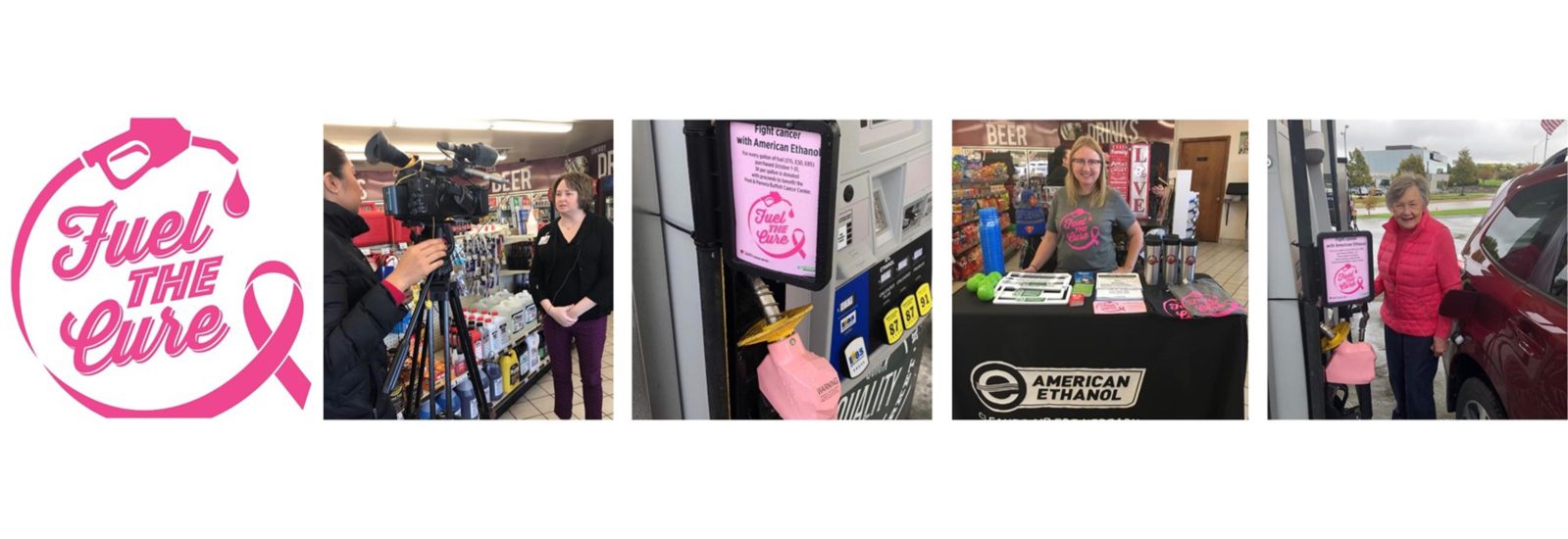Editor’s Note: We invited Jessica Sodeke, ethanol program manager for Nebraska Ethanol Board, to write a guest blog for us. Nebraska Ethanol Board is a member of our Metro Area Clean Air Collaborative and a long-standing supporter of Little Steps Cleaner Air. If you would like to write a guest blog or have blog idea, please contact us at info@mapacog.org.
What does reducing cancer have to do with ethanol? A lot.
Many studies (including this one from the American Association for Cancer Research) have found that pollution from traffic is associated with increased risk for several types of cancer, including lung, breast, liver, and pancreatic cancer. Oil companies use chemicals in gasoline to provide octane that vehicles need to “get up and go.” However, these same chemicals could be partially replaced or even replaced completely with ethanol, a non-toxic, natural octane booster, which reduces tailpipe emissions and eliminates 42% of greenhouse gases!
When I joined the Nebraska Ethanol Board just over a year ago as Program Manager, admittedly, I came into this not knowing a whole lot about ethanol. Through this year I’ve gone from knowing that gasoline contains ethanol to becoming a passionate, outspoken supporter of the product and its many benefits. And honestly, it didn’t take much for me to see the value – especially since it helps save lives and the planet.
Jenn’s Story
In a previous role, it was part of my job to write the stories of people who had received blood donations. I’ll never forget any of these deeply personal stories, but Jenn’s story was a first for me. What surprised me the most about her is that I felt like she could be me. We met at a downtown coffee shop and I only knew two things about her: she had received blood donations and had survived breast cancer. What I didn’t know is that Jenn and I had several things in common – we are both mothers, we are both in our 30s, and we are both very passionate when it comes to good causes.
She was so young and her eyes literally sparkled when she talked about her young daughter and the plans they now had for the future since she was a cancer survivor. Often we hear about children or older people battling cancer, but, at least for me, a 30-something mom was rare.
Jenn was diagnosed with cancer at the age of 32. Her cancer cells were growing and dividing very rapidly – at a rate of about 80%. Lifesaving treatment was needed right away. She completed 20 weeks of chemotherapy, received multiple blood and platelets transfusions, underwent a 4-hour procedure that included a port removal, sentinel node biopsy, double mastectomy, and immediate one-step reconstruction, and endured 33 sessions of radiation. By the end of 2015, Jenn was finally cancer free. If it wasn’t for a chemotherapy treatment that was discovered by a funded researcher, Jenn might not have been alive to share her story.
Improving Air Quality & Reducing Cancer
In 2018, the Nebraska Ethanol Board launched Fuel the Cure – a campaign to raise money for breast cancer research. In the past two years, the campaign has raised more than $13,000 and we are expecting another successful campaign in 2020. During October, when consumers fill up with higher blends of ethanol – from E15 to flex-fuel E85 – participating retailers contribute three cents per gallon to the Nebraska Medicine Fred & Pamela Buffett Cancer Center in Omaha.
Choosing ethanol at the pump is probably one of the easiest ways to give back to your community, support local agriculture, and help others. But how do you know what to use? E15 is approved for vehicles 2001 and newer and is available throughout greater Omaha. Higher blends, including E20, E30, and E85 are approved for use in flex fuel vehicles. To find a list of participating Fuel the Cure retailers, visit www.fueledbynebraska.com/pink. Drivers who choose Nebraska ethanol also save an average of 10 cents per gallon at the pump.
Fuel a healthier tomorrow, choose ethanol.
